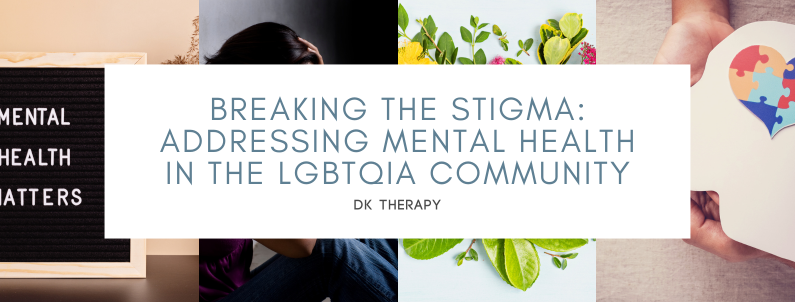
In some ways, society is heading in the right direction in terms of removing the stigma from talking about mental health. More and more people are being encouraged to discuss how they feel and reach out for help when it’s needed.
However, not every group of people receives the same support. Let’s explore the stigmas that still very much affect the LGBTQ+ community and how those stigmas interfere with an individual’s access to care.
Mental Health Concerns in the LGBTQIA Community
Self-discovery can be difficult for most populations, but among LGBTQIA individuals, coming to terms with one’s own identity can be especially challenging and even dangerous in some cases.
Plenty of contributing factors can negatively impact a person’s mental health, but LGBTQIA individuals tend to be disproportionately affected by mental health concerns. For one, teens who identify as LGBTQ+ are six times as likely to experience depressive symptoms than their cisgender, heteronormative peers. These individuals are also twice as likely to experience suicidal ideation and four times more likely to attempt suicide at least once.
This is especially true for transgender individuals, as almost half of transgender adults have reported that they’ve contemplated suicide within the past year. This is compared against 4% of the US population in general.
Various Roadblocks
 Despite the fact that individuals under the LGBTQIA umbrella tend to experience more symptoms of mental health struggles, they also typically find themselves dealing with roadblocks that others don’t when it comes to seeking care.
Despite the fact that individuals under the LGBTQIA umbrella tend to experience more symptoms of mental health struggles, they also typically find themselves dealing with roadblocks that others don’t when it comes to seeking care.
LGBTQIA individuals simply do not receive the same consideration as heterosexual or cisgender individuals. More than half of the LGBTQ+ patients surveyed in one study reported that they’ve been discriminated against by medical providers. Such instances include providers denying care (in up to 27% of transgender patients), using offensive language toward LGBTQ+ patients, and blaming a patient’s sexuality or gender identity for the presence of a mental health condition.
It’s 2023, and plenty of mental healthcare providers still carry prejudices with them to their place of employment. Whether these issues stem from cultural influences, preconceived stigmas, or inexperience with LGBTQIA patients, the outcomes have become a detriment to mental health treatment in the community at large.
Possible Sources of Trauma
Every life is unique, and not every LGBTQ+ individual is going to experience the same negative situations throughout their lives. That said, many people within the community have been forced to carry the impact of the following circumstances with them.
- Abandonment:
While most of the population has dealt with some form of conflict between themselves and a family member, familial abandonment is quite prevalent for LGBTQ+ individuals. To this day, coming out can be met with rejection and even violence from a person’s family unit. Plenty of LGBTQ+ people find themselves disowned, rendered homeless, or physically assaulted after trusting family members with this part of their identities.
- Abuse:
Experiencing violence at another person’s hands isn’t uncommon for LGBTQIA individuals, whether that abuse is from strangers, colleagues, family members, former friends, or even romantic partners. Abuse can range from verbal to physical and can include every incident in between. Individuals within the LGBTQ+ community are still at risk of falling victim to hate crimes, discriminatory practices, or social isolation from former in-groups.
- Substance Issues:
Even when individuals in need seek mental healthcare for services that may not be directly related to sexuality or gender identity, LGBTQIA individuals face barriers when it comes to care. For example, LGBTQ+ individuals are more likely to abuse substances, but less likely to receive help than straight patients. Being refused adequate care or substance abuse treatment by discriminatory healthcare providers tends to only exacerbate the issue at hand.
- Lack of Care Options:
Not all healthcare providers are appropriately trained to help LGBTQIA patients, and some of the time, the issue doesn’t come from the provider’s own prejudices. Even many mental health professionals who are well-intentioned and want to provide for LGBTQ+ patients might be out of the loop when it comes to understanding and addressing the unique challenges these individuals face. The lack of appropriate, catered care can make even attempting to seek help a daunting task.
- Depression:
Whether an individual in the LGBTQIA community experiences mental health issues resulting from abuse or abandonment from family, or from the weight of remaining “in the closet” out of fear, depression is a major concern for LGBTQ+ people. The secrecy that comes from essentially living a lie and the devastation of having no support after coming out can make these individuals especially vulnerable to depressive symptoms and suicidal tendencies.
If you or someone you care about falls under the LGBTQIA umbrella and needs mental health services, contact DK Therapy at your convenience. One of our experienced allied therapists will welcome you to the practice and provide you with dedicated mental health care.




